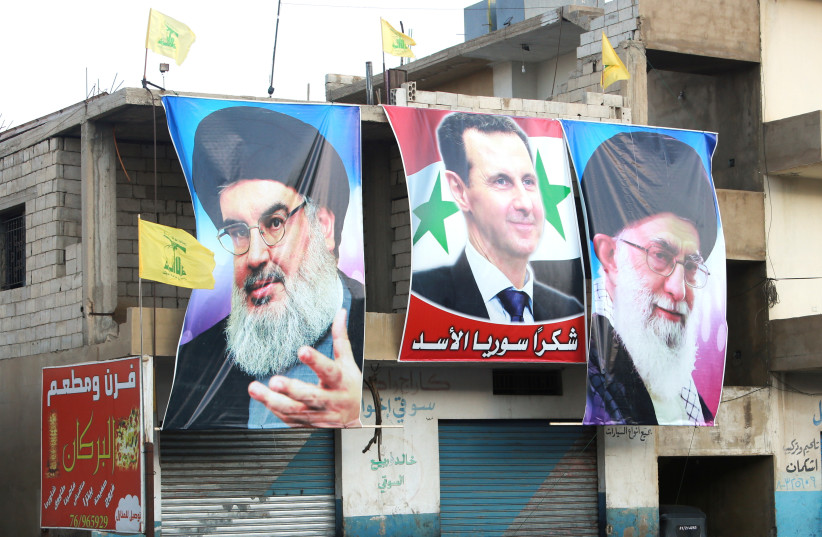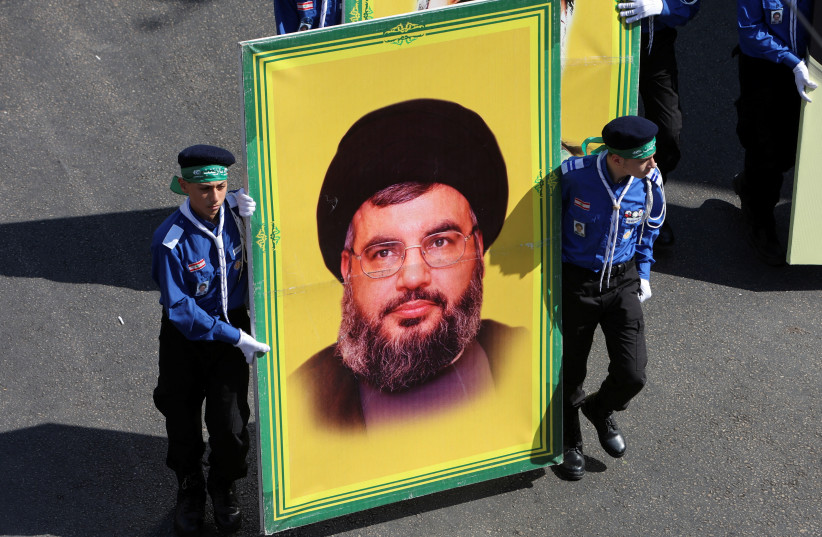While neither may be directly responsible for the rocket attacks, Hezbollah controls southern Lebanon and attacks from there are linked to the wider threat in the North.

As tensions grow between Israel and Iran, Hezbollah and Hamas, there is an increased chance of escalation on various fronts. A barrage of rockets was fired at communities on Thursday across the Western Galilee near the Lebanese border.
Defense Minister Yoav Gallant was briefed on recent security events on the northern border and gave initial directives to the chief of staff and the wider defense establishment. The attacks on the Galilee are a major escalation, not seen since the May 2021 war between Israel and Hamas in Gaza.
The overall context is that Hezbollah and Iran appear willing to take more risks in their confrontation with Israel. While neither of them may be directly responsible for the rocket attacks, Hezbollah controls southern Lebanon, and attacks from there are linked to the wider threat from the two across the North.
Iran and Hezbollah taking risks
The threat and the risks that Iran and Hezbollah are willing to take are apparent from an earlier incident this week in which Israel brought down an unidentified aircraft. Hezbollah also appears to be taking risks.
Reports on Wednesday, on the eve of Passover, also said Hamas leader Ismail Haniyeh was traveling to Lebanon. This came after rockets were fired from Gaza overnight. Iran’s hand behind the tensions is clear, as Iran carried out a similar escalation before the May 2021 conflict.

Al-Ain media in the Gulf, which generally carries insightful analysis of the region on its website, said the current tensions in Syria threaten a “direct clash between Iran and Israel,” referencing back to recent incidents over the last week. Iran has held funerals for IRGC members killed in Syria, for instance.
The Alma Research and Education Center, which addresses Israel’s security challenges on the northern border, has put out several statements on social media about the increased tensions in Syria, Hezbollah’s threats and increased risk-taking.
It noted in late March that “Hezbollah places its weapons in Lebanon’s civilian infrastructure and also has no problem bringing weapons into religious buildings for an exhibition. Within their operational rear base of Baalbek, Hezbollah is the law.”
The organization, founded by Lt.-Col. (res.) Sarit Zehavi, has also noted that “the Iranians and Hezbollah continue working to establish [themselves] in Syria and act against Israel from Syria and from Lebanon.”
This comes in the context of Iran also increasing rhetoric against Israel in the wake of clashes in Jerusalem and around al-Aqsa Mosque over the past few days.
At the same time, the visit by Haniyeh to Beirut is important. Jason Brodsky, policy director of United Against Nuclear Iran, said online that it is a “noteworthy trip amid events at al-Aqsa overnight: Lebanon’s Information Ministry is announcing that #Hamas’s political chief Ismael Haniyeh has arrived in Beirut. Would not be surprised to see him coordinating with Hezbollah and others on a response. Since 2020 – after a 27-year hiatus – he’s been making yearly trips there.”
The rocket barrage on Thursday took place after Brodsky made this prescient observation.
It’s important to consider the overall circle of tensions now surrounding Israel on multiple fronts, many of them linked to Hamas.
Tensions surrounding Israel on all sides
Hamas said on Wednesday that “We call on the international community and the Arab and Islamic countries to fulfil their responsibility toward protecting al-Aqsa Mosque from continued Israeli crimes.”
Meanwhile, Gallant visited an Iron Dome battery in the South and said “we will hit anyone who tries to harm us, and exact a heavy price that will make them regret threatening Israeli citizens or IDF troops.”
With Hamas-Israel tensions on the rise over incidents in Jerusalem – and with the terrorist group trying to exploit these incidents – Hamas may also be seeking to reach out to Hezbollah in Beirut.
Then, at the same time, there are the tensions in Syria with the Syrian regime, and Iran condemning Israel for what it claimed were alleged airstrikes. Furthermore, there is the attempt by Iran to penetrate Israel’s airspace with the unidentified aircraft earlier this week.
In addition, Palestinian Islamic Jihad, which is a proxy group backed by Iran, also slammed Israel and Azerbaijan this week. The rocket attacks on Passover are the latest in a string of incidents that risk wider conflict.
It’s difficult to quantify all this activity, but the overall perception is that Iran and these groups that it backs are risking escalation. This comes during religious holidays converging, with Passover and Ramadan taking place at the same time. When holidays converged in the past, there were tensions; Iran seeks to exploit this period.
Tehran is not only exploiting the friction close to Israel, but is also involved in a growing series of comments about Azerbaijan-Israel ties. And Iran is also seeking to increase ties with Saudi Arabia this week and is working with Turkey and Russia.
It remains to be seen whether Iran will choose to continue to push the diplomatic angle, or if it will push its proxies to escalate against Israel. At the moment, it has shown a preference to risk an escalation.
Content retrieved from: https://www.jpost.com/middle-east/article-738631.